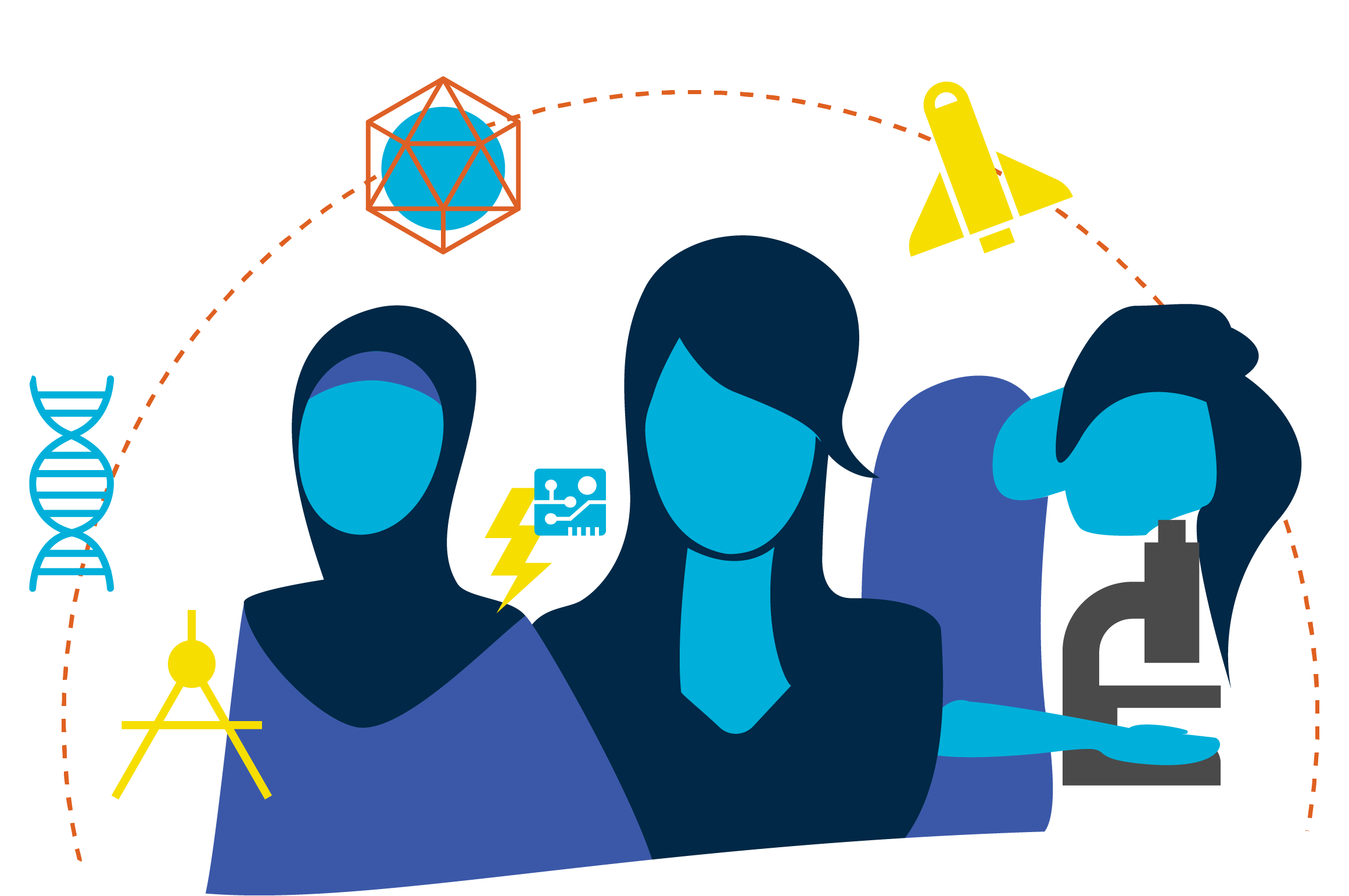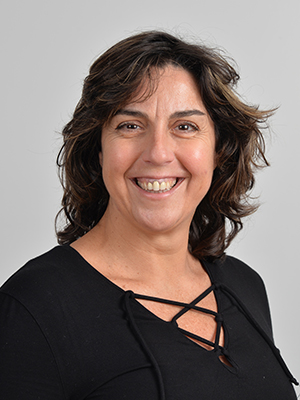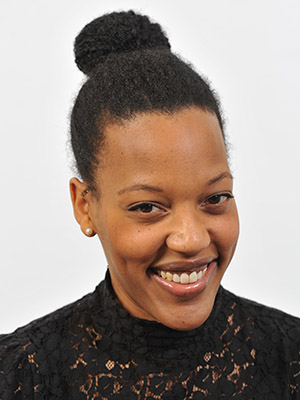Celebrating the School of Biological and Chemical Sciences' Women in Science
Today is UN International Day of Women and Girls in Science, which aims to recognise women’s contributions in science, smash stereotypes and defeat discrimination against women and girls in science.

Image credit: Washington STEM
To celebrate we are taking a look at just a few of the many great female role models within the School of Biological and Chemical Sciences community, who are helping to further scientistic understanding, improve gender equality and encourage girls into science.
Professor Viji Draviam.jpg)
Professor Viji Draviam is a Professor of Quantitative Cell and Molecular Biology and Director of Industrial Innovation in the School of Biological and Chemical Sciences (SBCS). She also teaches on several undergraduate modules.
Her research is aimed at understanding how cytoskeletal forces are generated and controlled within human cells. Specifically, her research group uses a combination of high-resolution microscopy and molecular biology techniques to understand the molecular mechanisms that ensure chromosomal and genomic stability in normal and cancerous human cells. While working at MIT in 2006, she discovered one of the processes that causes the formation of tumours.
Professor Draviam co-founded CellCentives, an international clinical initiative to help eradicate tuberculosis, and is a co-mentor on the ENERGISE campaign, which aims to promote STEM education among women students.
Professor Marina Resmini
Professor Marina Resmini is an award-winning Professor of Materials Chemistry and the Deputy-Head of Chemistry Department (recently stepping down as Head after four and a half years). She is an internationally-recognised leading voice in her field and teaches on both undergraduate and postgraduate programmes. As well as her teaching and research roles she is a Trustee of the Royal Society of Chemistry (RSC) and Chair of its Inclusion and Diversity committee. On top of this, she is a member of the SBCS Equality, Diversity and Inclusion Committee, focusing on undergraduate student recruitment & career support.
She has a strong research interest on the development of novel functional nanomaterials with potential applications at the physical and life sciences interface; in particular she focuses on the use of chemical tools to confer special properties to materials for applications as drug delivery systems, catalysts and sensors.
Her research group for example have recently started working on the development of novel sensors for the detection and quantification of key components in coffee. The group have also developed imprinted polymers which can be successfully used as synthetic antibodies and as the recognition element of a fiber optic sensor. Notably, along with other researchers within the school she has also recently uncovered a novel method to evaluate the biodegradability of plastic samples which will help tackle the plastic pollution problem.
Dr Isabel Palacios
Dr Isabel Palacios is a Lecturer in Cell Biology on the Nanchang Joint Programme and a visitor scientist at the University of Cambridge. She is also a member of the SBCS Equality, Diversity and Inclusion Committee, focusing on Intersectionality.
Her ultimate scientific aim is to contribute to the understanding of diseases, and she believes that in order to achieve this goal we need to understand fundamental cell biophysical mechanisms underpinning health.
Dr Palacios is one of the founders of the DrosAfrica Trust. The charity aims to build an African biomedical research community using Drosophila melanogaster as a model system. So far the charity has run workshops for over 100 people from nine institutions across eight different African countries including Uganda, Kenya, Nigeria and Tunisia. Several participants have gone on to establish their own fly labs to help develop the next generation of African biomedical scientists.
Dr Janelle Jones
Dr Janelle Jones Is a Senior Lecturer in Social Psychology and Director of Graduate Studies and teaches on several undergraduate modules. She is interested in how our social connections (e.g. friends, family, clubs, social categories), and related identities, influence the ways we see ourselves, shape our interactions with others, promote resilience, and impact our health and well-being. Some of her recent research has helped create a straightforward framework of five common understandings about identity changes in psychosis, which can assist discussions between patients and clinicians.
She is also the Intersectionality lead on the SBCS Equality, Diversity and Inclusion Committee, where she evaluates how combinations of protected categories (i.e., age, gender, race/ethnicity, sexual orientation, ability) and other category memberships (e.g., class, education) can influence opportunities and outcomes for staff and students and works to promote equal opportunities.
Dr Ozge Eyice-Broadbent 
Dr Ozge Eyice-Broadbent is a Lecturer in Molecular Microbial Ecology who teaches on several undergraduate modules. She is currently interested in biomethane production during anaerobic wastewater treatment. Biomethane as a renewable energy source represents a major opportunity to mitigate climate change by decreasing the total greenhouse gas emissions to the atmosphere. She aims is to enhance biomethane generation from wastewaters through understanding the diversity, interactions and metabolism of anaerobic microorganisms.
Recent research from her is furthering our understanding of global warming, so more accurate models can be created. Along with other SBCS researchers, she showed that as the Earth warms, natural ecosystems such as freshwaters will release more methane than expected from predictions based on temperature increases alone.
Dr Anna Pachol
Dr Anna Pachol is a Senior Lecturer in Maths who teaches on the Science and Engineering Foundation Programme. She has a strong interest in promoting the role of women in sciences and in the past has presented as an invited speaker at the conference “Women Count” organised within the International Women's Week at the School of Maths at QMUL.
She is currently co-chair of the SBCS Equality, Diversity and Inclusion Committee and has helped lead the committee to achieve significant improvements in culture and gender balance across the School which resulted in the school receiving the Athena SWAN Departmental Silver Award. SBCS was the first Department at Queen Mary to be awarded the Silver Award and the committee have spearheaded positive change since 2012.